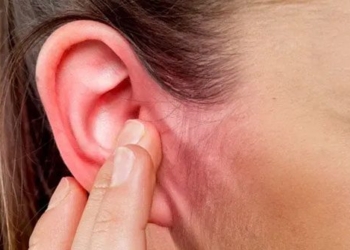Asperger Syndrome is a form of autism. Since 2013, all forms of autism have been collectively referred to as Autism Spectrum Disorder (ASD). Individuals with Asperger Syndrome may be intelligent and have better-than-average speaking skills, which is why this syndrome is also known as high-functioning autism.
1. Causes of Asperger Syndrome
When you meet someone with Asperger Syndrome, you may immediately notice two signs. First, the person is as intelligent as others but struggles more with social skills. Second, they tend to obsessively focus on a particular topic or engage in repetitive behaviors.
Doctors once thought Asperger Syndrome was a separate condition. However, in 2013, the latest edition of the standard manual used by mental health professionals, known as the Diagnostic and Statistical Manual of Mental Disorders, Fifth Edition (DSM-5), changed how this syndrome is classified.
Today, technically, Asperger Syndrome is no longer a distinct diagnosis. It is now part of a broader category known as Autism Spectrum Disorder (ASD). This group of related mental health issues shares several symptoms. Nevertheless, many people continue to use the term Asperger’s.
Asperger Syndrome is also referred to by doctors as a type of “high-functioning” autism spectrum disorder. This means that the symptoms are less severe than those of other types of autism spectrum disorders.
The exact causes of autism spectrum disorders remain unidentified, although genetic factors are believed to be involved. Evidence suggests that Asperger Syndrome has been observed to run in families with individuals affected by this condition. In some cases, autism can be related to exposure to toxins, teratogens, pregnancy or birth complications, and infections during pregnancy. These environmental influences may interact to modify or potentially exacerbate the severity of genetic defects.
Some authors have proposed a causal role for exposure to vaccines (especially measles vaccines and thimerosal, a preservative used in some vaccines) in autism. However, the majority of epidemiological evidence shows no link between vaccination and autism. Numerous large studies over the years have found no connection between autism and vaccines. According to the Institute of Medicine, the American Academy of Pediatrics, and the Centers for Disease Control and Prevention (CDC), there is currently no evidence that vaccines cause autism spectrum disorders.

Asperger Syndrome is part of Autism Spectrum Disorder.
2. Symptoms of Asperger Syndrome in Children
Children with autism have poor social skills and exhibit repetitive interests, activities, or behaviors. Unlike more severely affected children with autism, those with milder forms can have average or above-average intelligence and develop initial language skills normally.
Symptoms often become noticeable around age 3 when children begin to interact with other kids. Possible warning signs of autism include:
- Difficulty using or understanding non-verbal cues such as facial expressions, body posture, and gestures
- Difficulty understanding humor, teasing, sarcasm, and figurative language
- Monotone speech, lack of rhythm, or speaking in an incomprehensible manner
- Failure to develop relationships with other children
- Avoiding eye contact
- Desire to be alone
- Inability to share interests or achievements with others, such as not expressing, showing, or pointing out what they enjoy
- Inability to interact with others or share emotions
- Obsessive interests
- Discomfort with minor changes
- Fixation on routines or processes
- Strange or repetitive movements, such as flapping or spinning hands or fingers, rocking, or twirling
- Clumsiness
- Interest in parts of objects
- Unusual reactions to the taste, sight, smell, or feel of things
- Overly formal speech, such as not using slang or figurative language
- Very fluent speech but limited to specific topics of interest
3. Diagnosis and Treatment of Asperger Syndrome
Diagnosis
If you notice the signs listed above, take your child to see a pediatrician. The pediatrician will conduct a screening, and if there are signs of concern, they may refer you to a mental health professional specializing in autism and Asperger Syndrome, such as one of the following specialists:
- A psychologist to diagnose and treat emotional and behavioral issues.
- A pediatric neurologist to treat brain disorders.
- A developmental pediatrician to address language, speech, and other developmental issues in children.
- A psychiatrist. This is a doctor specializing in mental health conditions who can prescribe medication to treat these disorders.
Asperger Syndrome is often treated through a team approach, meaning you may meet with various specialists to care for and treat your child.
The doctor will ask questions about your child’s behavior, including:
- What symptoms does your child have, and when did you first notice them?
- When did your child first learn to speak, and how do they communicate with others?
- Does your child focus on any subjects or activities?
- Does your child have friends, and how do they interact with others?
Then, the doctor will observe your child in different situations to directly see how they communicate and respond.
The way mental health professionals diagnose autism has changed over the years, and doctors and therapists no longer use the term “Asperger Syndrome.” Instead, all children with autism—including those with milder forms like Asperger—are now simply diagnosed as having Autism Spectrum Disorder (ASD).
The American Academy of Pediatrics (AAP) recommends that all children be screened for autism at 18 months and 24 months during check-ups. Parents can also request an evaluation for the syndrome if they are concerned about their child.
Treatment
Each child with autism has different treatment needs, so there is no one-size-fits-all approach for all autism patients. Doctors may need to try several therapies before finding an effective and suitable approach for the child.
Autism treatment may include:
- Social skills training. In group sessions or one-on-one with a therapist, children learn how to interact with others and express themselves appropriately according to different situations. Social skills are often best learned through modeling after the therapist demonstrates normative behaviors.
- Speech therapy. This therapy helps improve children’s communication skills. For example, children learn to vary their pitch when speaking rather than speaking in a monotone. They also receive lessons on how to maintain two-way conversations and understand body language, such as gestures and eye contact.
- Cognitive Behavioral Therapy (CBT). This therapy helps children change their thinking patterns, enabling them to better control their emotions and repetitive behaviors. Children can learn to manage symptoms such as outbursts, meltdowns, and obsessions.
- Parent training. Parents learn many of the same techniques that children are taught, aimed at helping them practice social skills with their child at home. Some families may also benefit from counseling to help them cope with the challenges of living with someone with Asperger Syndrome.
- Applied Behavior Analysis (ABA). This technique encourages positive communication and social skills in children while discouraging unwanted behaviors. The therapist uses praise or other “positive reinforcement” to improve symptoms in children.
- Medication. There are no FDA-approved medications specifically for Asperger or other autism spectrum disorders. However, some medications may help treat related symptoms such as depression and anxiety. Doctors may prescribe some of the following: Selective Serotonin Reuptake Inhibitors (SSRIs), antipsychotics, and stimulant medications.
With appropriate treatment, your child can learn to manage some of the social and communication challenges they face. As a result, they can succeed in school and continue to thrive in life.
If your child exhibits signs of autism, parents should seek evaluation at specialized autism centers as soon as possible. Early intervention is considered the leading method in autism treatment. Early intervention can improve social integration and language skills in children. Recently, stem cell therapy has opened new avenues in the treatment of autism and holds great promise for the future.




















































